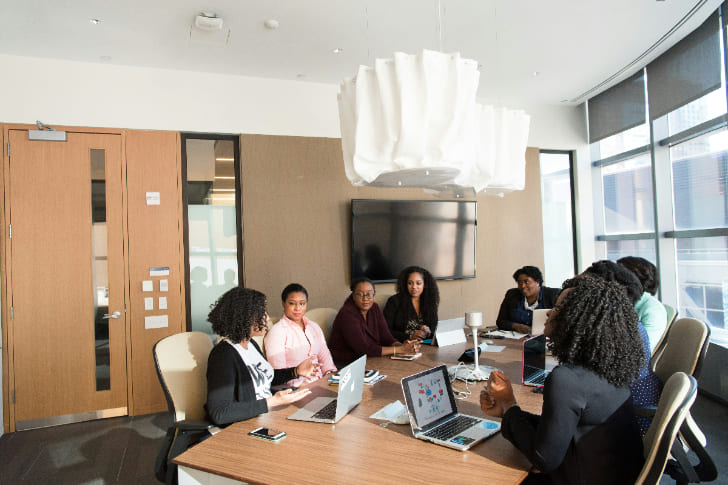Divorce and separation are never easy, especially when children are involved. Beyond the emotional toll, parents must navigate one of the most difficult issues—child custody. Deciding who gets custody, how visitation is structured, and how the child’s best interests are protected can be overwhelming. This is where a child custody lawyer plays a vital role.
Child custody attorneys specialize in family law and focus on resolving custody disputes, whether through negotiation, mediation, or litigation. They act as advocates for parents while ensuring the child’s welfare remains the top priority.

If you’re considering hiring one, here are the 10 most important things you must know about child custody lawyers.
1. Child Custody Lawyers Specialize in Family Law
A child custody lawyer isn’t just a general attorney—they are specialists in family law. Family law covers a wide range of issues, including:
- Divorce and separation.
- Custody and visitation rights.
- Child support.
- Spousal support (alimony).
- Adoption.
- Domestic violence cases.
Because custody battles are often highly emotional and legally complex, you need a lawyer who has specific experience handling cases that directly involve children and parental rights.
Key takeaway: Not every lawyer is qualified to handle custody disputes. Look for someone with proven family law expertise.
2. Custody Lawyers Help With Different Types of Custody
Child custody isn’t one-size-fits-all. There are several types of custody arrangements, and a custody lawyer helps you understand which is most appropriate for your case:
- Legal custody: The right to make decisions about the child’s upbringing (education, healthcare, religion).
- Physical custody: Where the child lives day-to-day.
- Joint custody: Both parents share responsibilities, though not always equally.
- Sole custody: One parent has primary custody, while the other may get visitation rights.
Example: A court may award joint legal custody but grant primary physical custody to one parent if it’s in the child’s best interest.
Tip: A custody lawyer ensures you pursue the arrangement that works best for your child and your situation.
3. The Child’s Best Interest Is the Priority
Family courts make custody decisions based on the “best interest of the child” standard. Factors include:
- Each parent’s ability to provide a safe, stable home.
- Emotional bonds between the child and each parent.
- The child’s school and community ties.
- Any history of abuse, neglect, or substance abuse.
- In some cases, the child’s own preferences (depending on age and maturity).
A child custody lawyer presents evidence and arguments that demonstrate why you are the best custodial option for your child.
4. They Handle Both Contested and Uncontested Custody Cases
Not all custody cases end in bitter courtroom battles. Some parents agree on custody arrangements and only need help finalizing them.
- Uncontested custody: Both parents agree on terms. Lawyers help draft and file agreements with the court.
- Contested custody: Parents cannot agree, requiring litigation. Lawyers present arguments, cross-examine witnesses, and advocate for their client’s custody rights.
Key point: Even if your custody case seems straightforward, hiring a lawyer ensures paperwork is accurate, deadlines are met, and your rights are protected.
5. Mediation and Negotiation Are Common
Contrary to popular belief, custody lawyers don’t always push for courtroom battles. In fact, many encourage mediation to reduce conflict and stress.
- Mediation: A neutral third party helps parents negotiate a custody arrangement.
- Collaborative law: Both parties work together, with lawyers guiding the process, to avoid litigation.
These approaches save time, money, and emotional strain, while also allowing parents to maintain better relationships for the sake of the child.
Tip: A good custody lawyer knows when to negotiate and when to fight in court.
6. They Can Modify Existing Custody Arrangements
Child custody orders aren’t always permanent. Life changes—such as a parent moving, losing a job, or experiencing health issues—may require a custody modification.
A child custody lawyer helps you:
- File petitions to modify custody.
- Prove that significant changes justify the request.
- Defend against attempts to unfairly change custody terms.
Example: If one parent relocates for work, the custody order may be updated to reflect new visitation schedules.
7. Custody Lawyers Also Handle Child Support Issues
Child custody and child support are closely linked. The parent with primary custody often receives financial support from the other parent. Custody lawyers can:
- Calculate fair child support payments.
- Enforce child support orders.
- Represent clients in disputes over unpaid support.
- Ensure support reflects the child’s real needs (medical, educational, extracurricular).
Key takeaway: Hiring a custody lawyer often means addressing both custody and support in one legal strategy.
8. They Protect You From Legal Mistakes
Family law cases involve complex rules, strict deadlines, and extensive paperwork. A single mistake—like missing a filing deadline or failing to provide evidence—can hurt your case.
A child custody lawyer:
- Prepares and files legal documents.
- Ensures compliance with state laws.
- Represents you in hearings and trials.
- Anticipates strategies the other side may use.
Tip: Having an experienced lawyer reduces the risk of costly errors that could jeopardize your parental rights.
9. They Advocate for Parents in High-Conflict Situations
Some custody disputes are especially difficult—such as when there are allegations of:
- Domestic violence.
- Child neglect or abuse.
- Substance abuse by one parent.
- Parental alienation (one parent turning the child against the other).
In these cases, a custody lawyer is crucial to ensure your rights are protected and the child remains safe. They can gather evidence, bring in expert witnesses, and fight aggressively in court.
10. Choosing the Right Child Custody Lawyer Matters
Not all lawyers are the same. Choosing the right one can make the difference between winning and losing custody. When hiring a custody lawyer, look for:
- Experience in family law and custody cases.
- Strong communication skills—you’ll need to trust them with sensitive issues.
- Negotiation and litigation experience—a lawyer who can settle when possible but fight when necessary.
- Client reviews and reputation.
- Compassion and empathy—someone who understands the emotional impact of custody disputes.
Tip: During your initial consultation, ask about their experience, case strategy, and success rate.
Additional Insights
The Emotional Side of Custody Disputes
Custody battles can be draining. Lawyers often recommend counseling or support groups for parents and children to manage stress during the process.
Grandparents’ Rights
In some states, grandparents or other relatives can also seek custody or visitation rights. A custody lawyer can explain your state’s laws.
Temporary Custody Orders
While waiting for a final decision, courts often issue temporary custody orders. A lawyer ensures these reflect your child’s best interests.
Pros and Cons of Hiring a Child Custody Lawyer
| Pros | Cons |
|---|---|
| Specialized legal expertise in family law | Legal fees can be expensive |
| Protects your parental rights | Custody cases may take months or years |
| Helps negotiate or mediate agreements | Emotional stress of litigation |
| Handles child support and custody together | Outcome is ultimately up to the court |
Real-Life Example
Imagine a father fighting for joint custody after divorce. The mother argues she should have sole custody because she was the primary caregiver. With the help of a custody lawyer, the father provides evidence of his involvement—attending school meetings, medical appointments, and extracurriculars.
The court awards joint custody, ensuring both parents remain actively involved in the child’s life. Without legal representation, the father may have lost significant parenting rights.
Conclusion
Child custody disputes are among the most challenging aspects of family law. They affect not just parents but also the emotional and psychological well-being of children. A child custody lawyer is more than just a legal advocate—they’re a guide, negotiator, and protector of your parental rights.
To recap, the 10 things you must know about child custody lawyers are:
- They specialize in family law.
- They handle different types of custody.
- The child’s best interest guides all decisions.
- They manage contested and uncontested custody cases.
- Mediation and negotiation are often used.
- They can modify custody arrangements.
- They also address child support issues.
- They prevent costly legal mistakes.
- They protect parents in high-conflict disputes.
- Choosing the right lawyer is crucial.
If you’re facing a custody battle, hiring an experienced child custody lawyer can be the difference between protecting your parental rights and losing precious time with your child.









Leave a Reply